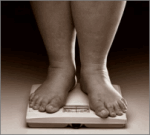Managing Suboptimum Response to Antidepressants with SAMe and L-methylfolate
The need for viable augmentation strategies to assist in the pharmacological management of treatment-resistant depression has become so dire that clinicians seem to perk up to any option nowadays – regardless of how fly-by-night, “here today gone tomorrow” it may be. This is happening, at least in part, due to the ever-growing problem of suboptimum response to traditional antidepressant therapies. […]


